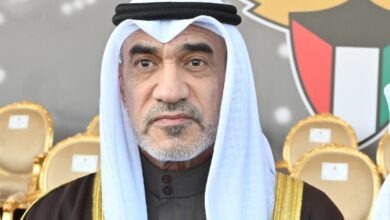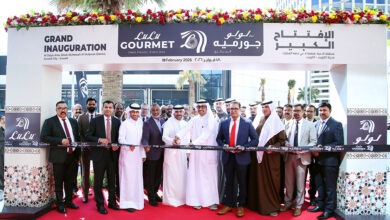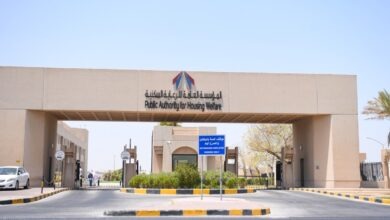EU-GCC Talks Aim to Advance Mutual Interests, Address Global Challenges
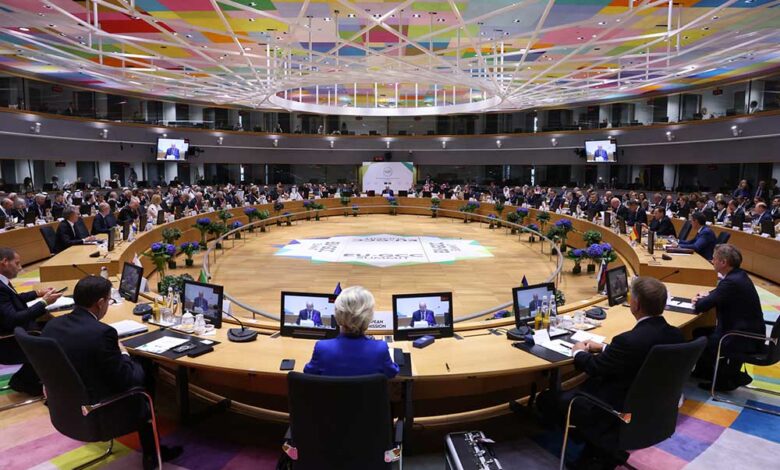

By Tareq Yousef AlShumaimry
Former Secretary-General of the Commercial Arbitration Centre of the Gulf Cooperation Council
Confluence of challenges from ongoing conflicts, geopolitical schisms, economic upheavals, and unsustainable development, as well as devastating climate change repercussions and en masse human displacement, have made global cooperation, coordination, and multilateralism no longer an option, but an imperative need of our time.
The need to collectively confront and respond to common security and economic challenges was the genesis for the formation of the Gulf Cooperation Council (GCC) in 1981. In signing the GCC Charter, the then leaders of the six-nation GCC bloc affirmed the need for unity, coordination and integration among member states in all fields. based on their common objectives and similar political and cultural identities .
It was likewise security and economic compulsions in the aftermath of the Second World War that led to the evolution of the North-Atlantic Treaty Organization (NATO) for intergovernmental security in 1949, and the European Economic Community (EEC) in 1957. The 1992 Maastricht Treaty, which formed the basis for the European Union (EU) in its present format, was also fueled by the need for cohesion and stability in Europe after the breakup of the former Soviet Union.
While predecessors to the EU pursued different objectives, the EU in its prevailing form was the first to seek social, political and economic integration and harmony among its growing number of member states. For its part, the GCC bloc has over its 44 years of existence been pursuing similar objectives aimed at furthering their integration into a single secure, political, social, and economic entity.
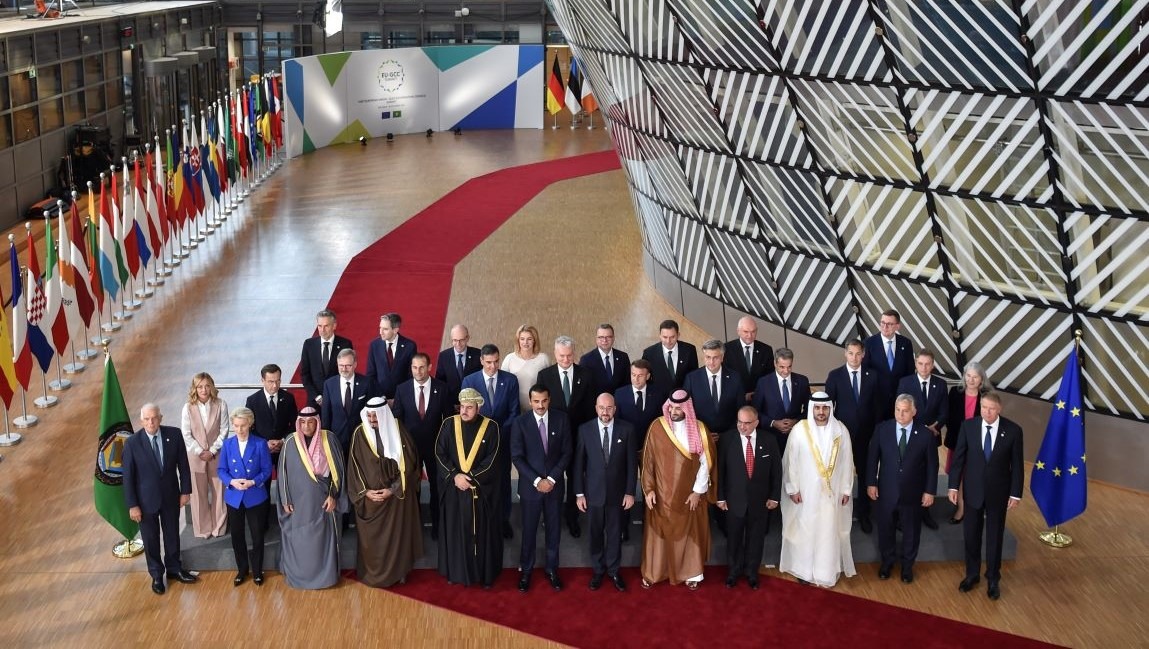
In 1989, the GCC and the European Economic Community (EEC)—the immediate predecessor of the EU—inked a cooperation agreement, which has evolved over time to include regular ministerial meetings and political dialogues between the two sides on various issues, including common global challenges, economic cooperation, sustainable development, climate change, security, and initiative on the people-to-people level.
To further advance their cooperation, in May 2022, the EU outlined an organizational roadmap to develop a strategic partnership with the GCC. As part of this roadmap, and in response to the growing urgency for a multilateral approach to address global peace, security, economic prosperity, and social development, leaders of member states of the EU and GCC met in Brussels, Belgium for the first EU-GCC Summit in October 2024, under the theme of ‘Strategic Partnership for Peace and Prosperity’.
In a joint statement issued at the end of the summit, EU and GCC leaders stressed the desire of the two blocs to build their Strategic Partnership, based on mutual respect and trust, for the benefit of people in the two regions and beyond. The statement noted that the partnership is anchored on the international rules-based order that fully respects international law, including the United Nations (UN) Charter, international humanitarian law, and the promotion and protection of universal human rights.
The two sides agreed to work together to promote global and regional security and prosperity, including preventing the emergence and escalation of conflicts, and resolving crises. Additionally, they acknowledged the need to foster multilateral, regional, and bilateral frameworks with a view to further strengthen cooperation. The statement also called for holding a summit every two years, and agreed to hold the next Summit in Saudi Arabia in 2026, and to organize the 29th Joint Council and Ministerial Meeting in Kuwait in 2025.
A year since then, and in line with the Brussels summit communique, Kuwait, which currently holds the rotating presidency of the GCC, is set to host the 29th EU-GCC Joint Council and Ministerial Meeting on Monday, 6 October in Kuwait City. Ahead of the meeting, the GCC Secretariat and the Gulf Regional office of the EU have been coordinating efforts, reviewing outcomes of the earlier summit, and drawing up plans to address shared strategic challenges.

The EU and the GCC are by many counts totally disparate blocs. With more than 448 million people spread over an area of four million square kilometers (sq km), and an economy that is among the largest in the world at US$17 trillion, the EU easily dwarfs the 61 million inhabitants of the GCC states that live in an area of less than 2.6 million sq km and have a combined economy of around $2 trillion.
Regardless of these disparities, the GCC has over the years played an increasingly pivotal role in global affairs, underscored in part by its strategic proximity to geopolitically volatile regions and sea lanes vital to global trade. The region’s immense hydrocarbon assets and the influence wielded by its enormous sovereign wealth funds have also been persuasive elements in mitigating conflicts and in addressing crises regionally and internationally. Its sizable contributions to global humanitarian and development aid have also stood the region in good stead.
However, the region’s promising outlook and ambitious outreach faces several challenges, including from geopolitical fallouts, economic instability linked to energy prices, increasing global shift towards renewable energy, and the generally slow pace of economic diversification and social fiscal and political reforms. The future of the GCC is likely to be shaped by effectively addressing these challenges, in part by forming strategic partnership with other countries and regional blocs, as well as by transforming the GCC into a more cohesive political and economic entity.
Despite the EU and GCC not sharing geographic proximity, or cultural, social, political, and economic affinities, what they do have in common is a convergence in viewpoints on many global issues, their shared humanitarian ideals, and a strategic interest to redefine their relationship into a more cohesive and influential structure, capable of addressing the increasingly complex and myriad global challenges.
Core topics on the agenda of the upcoming Joint Council meeting include deepening the Strategic Partnership through strengthening political dialogue and institutional frameworks; monitoring implementation of the 2024 Summit’s Joint Statement and ensuring accountability for agreed actions, and establishing clear timeframes and structures for their implementation, as well as setting milestones for cooperation and progress across sectors.
On economic and environmental relations, both parties will seek to expand trade and investment flows; explore the prospects of reviving the long-stalled EU–GCC Free Trade Agreement; align their perspectives in international forums on climate change, sustainable development goals, and green technologies; leverage the digital and green energy transformations; build environmental resilience; cooperate in clean energy, carbon-capture technologies, support energy and food security, and enhance supply-chain resilience.
On the security side the two sides will be looking at augmenting joint efforts on counter-terrorism, maritime security, cyber and hybrid threats, non-proliferation, disaster response, regional security frameworks, promoting de-escalation, and addressing regional conflicts in Ukraine, Gaza, Lebanon, and in relations with Iran. Both the EU and GCC will reiterate their strong support for conflict mediation, multilateralism, and the rules-based order that fully respects international law.
Other key security related issues that will be deliberated during the ministerial meeting include ongoing geopolitical crises and conflicts, safeguarding freedom of navigation in strategic routes against attacks; cooperation in counterterrorism, cyber threats, non-proliferation, disaster response, and military-to-military cooperation, as well as whether GCC states will participate in EU naval missions or align with regional security operations;.
Notwithstanding the bonhomie surrounding the talks, the gathering is not expected to be without its share of challenges, including overcoming issues identified in translating the Brussels summit declarations into actionable projects and finding budgets to implement them. Additionally, the two sides will need to address the EU’s stricter emission tariffs levied by its Carbon Border Adjustment Mechanism (CBAM) that impacts GCC exports such as steel, aluminium, and petrochemicals.
The two sides will also need to review the EU-GCC Free Trade Agreement to find a way forward over issues of public procurement, regulatory alignment, and on energy products. Meanwhile, the new EU Council mandate to negotiate bilateral Strategic Partnership Agreements (SPAs) with each country, rather than with the entire bloc, on issues related to trade, energy, and security will also be up for discussion at the meeting.
The talks will also address GCC demand for easier access to EU states through visa-free travel to the EU and Schengen zones; expanding cooperation in cultural, educational, digital infrastructure, and student mobility through the EU’s Erasmus program for education, training, youth and sport, and the Horizon Europe funding program for scientific research and innovation, as well as building deeper understanding through people to people engagements, are also likely to feature on the agenda.
The two sides will also need to reach a consensus, or agree to differ, on their divergent foreign policy priorities. This is particularly relevant on issues where the two sides hold different perspectives, such as on sanctions against Russia over its Ukraine conflict, and on fallouts from the recent ‘snapback’ sanctions imposed on Iran over its nuclear file.
Additional sticky points in EU-GCC talks will include finding a balance, in their responses to geopolitical shifts underway globally, and in addressing the EU’s emphasis on human rights, labor standards, freedom of expression, without infringing on the sovereignty and sensitivity of GCC states. How much the ministerial meeting will push on these norms without damaging broader cooperation will be a key indicator of the success of upcoming talks in Kuwait.
The EU-GCC Strategic Partnership has proven critics, skeptical about pragmatic results emerging from closer integration between the two blocs, to be woefully wrong. The cooperation and partnership of the two blocs have over the years facilitated joint humanitarian initiatives around the world, advanced mutual interests, and contributed significantly to addressing various global challenges.
The potential of the EU-GCC strategic partnership to achieve much more in the future is undoubted.
Tareq Yousef AlShumaimry, served as Chairman of the Finance Committee and Chairman of the General Budget Committee of the Permanent Court of Arbitration in The Hague (PCA) and an observer in the Administrative Council of the Court and the Consular at International Court of Justice (ICJ) and the Embassy of the State of Kuwait in the Netherlands during this period from 2013 to 2020. Email: tareq@alshumaimry.com







